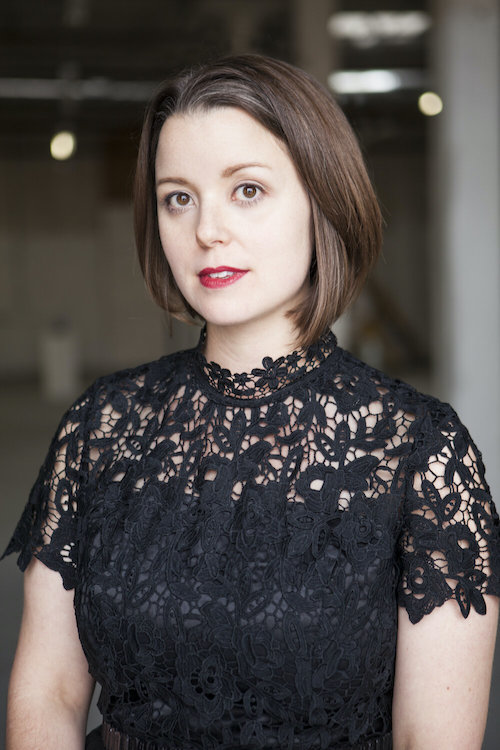Seraphic Fire turns to the lighter side of Bach in Enlightenment Festival

Bach’s sacred cantatas and large-scale choral works like the Mass in B minor and the St. Matthew and St. John Passions are pillars of the Baroque sacred repertoire. But Bach also had a secular, even whimsical side.
With Patrick Quigley leading an instrumental chamber ensemble, Seraphic Fire’s Enlightenment Festival celebrated the Bach of the Leipzig coffeehouse Friday night with outstanding performances of his Coffee and Wedding Cantatas at St. Philips Episcopal Church in Coral Gables. Italian songs by Stefano Landi and Claudio Monteverdi served as musical palette cleansers between the main attractions.
Soprano Margot Rood took the spotlight for the Wedding Cantata. The text of this joyous work equates the coming of spring after winter to the birth of love and concludes with a celebration of the bridal couple. Courtly dance rhythms were always central to Bach’s music and the cantata’s final section is a gavotte. Rood’s high voice spun this paean to spring enchantingly and Geoffrey Burgess’s oboe obbligato added color to the vocal line.
Rood blended so seamlessly with the ensemble that, at times, her voice took on the sonority of an instrument. She delivered the recitative sections in a light, clipped manner with a child like sense of wonder. “Sich üben in Lieben” (To be accustomed, in love) is one of Bach’s most vivacious creations and Rood’s clear, pure voice and directness of delivery were all the more effective for avoiding flourishes. The warmth of sonority from the period instrument players enhanced Rood’s winning singing.
The Coffee Cantata is a miniature opera buffa, telling the tale of a grouchy father who attempts to dissuade his daughter from drinking the dreaded caffeine with the threat of denying her a husband. While appearing to acquiesce, she inserts into the marriage contract a clause that she may brew coffee whenever she so desires. Fortunately, both the once-scandalous drink and Bach’s delightful music have happily survived.
Tenor Patrick Muehleise was a deft and witty narrator, making his entrance by offering a cup to Quigley who motioned him away. One would have liked more of that semi-staged comedic interplay rather than the stylized concert rendition that was presented.
Musically, however, the performance was nearly flawless. The father’s opening aria could easily have come from a Mozart comedy. Quigley’s vigorous pacing and bass-baritione Steven Eddy’s rolling low range and bright declamation set the mood for the arguments between father and daughter that dot the recitatives, sung with playful exuberance. As the daughter, Margot Rood’s accented emphasis on the word “coffee” in her initial aria was a total delight, accompanied by the roulades of Joseph Monticello’s agile flute. Quigley took a faster tempo for the lovely aria “Heute noch” (Even today), enhanced by Rood’s pointed phrasing and projection of girlish innocence. Her voice floated over the melded timbres of Muehleise and Eddy in the final trio. The score remains a unique gem among Bach’s oeuvre, especially when presented with such patrician musicianship and stylish finesse.
In the Italian songs Eddy’s commanding bass-baritone and tenor Muehleise’s more intimate vocal style contrasted winningly in Landi’s “Homo fugit velut umbra,” a rollicking ditty that belies its repeated refrain of “bisogna morire” (we must die). The two men morphed into a Baroque pop duo for Monteverdi’s “Damigella tutta bella” (Damsel all beautiful). Edson Scheid de Andrade’s lengthy, soulful violin solo set the tone for the Monteverdi’s “Si Dolce e’l tormento” (So sweet is the torment) with Muehleise’s voice in full operatic bloom soaring through the sanctuary. “Zefiro torna, e di soave accenti” (The air is graceful) was Monteverdi’s version of a folk round, sung by Eddy and Muehleise with vociferous enthusiasm.
As in the festival’s previous Haydn program, Leon Schelhase (this time on harpsichord) was a tower of strength, particularly in the backdrop to the cantata recitatives. Cellist Sarah Stone’s dexterity and the warm tone of her instrument’s gut strings were particularly effective in backing up the father’s complaints. Violinist Katie Hyun and violist Kyle Miller contributed to the outstanding instrumental collaborations.
Seraphic Fire repeats the program 7:30 p.m. Saturday at All Saints Episcopal Church in Fort Lauderdale and 4 p.m. Sunday at St. Gregory’s Episcopal Church in Boca Raton. Seraphicfire.org
Posted in Performances
Leave a Comment
Sat Feb 15, 2020
at 1:29 pm
No Comments
